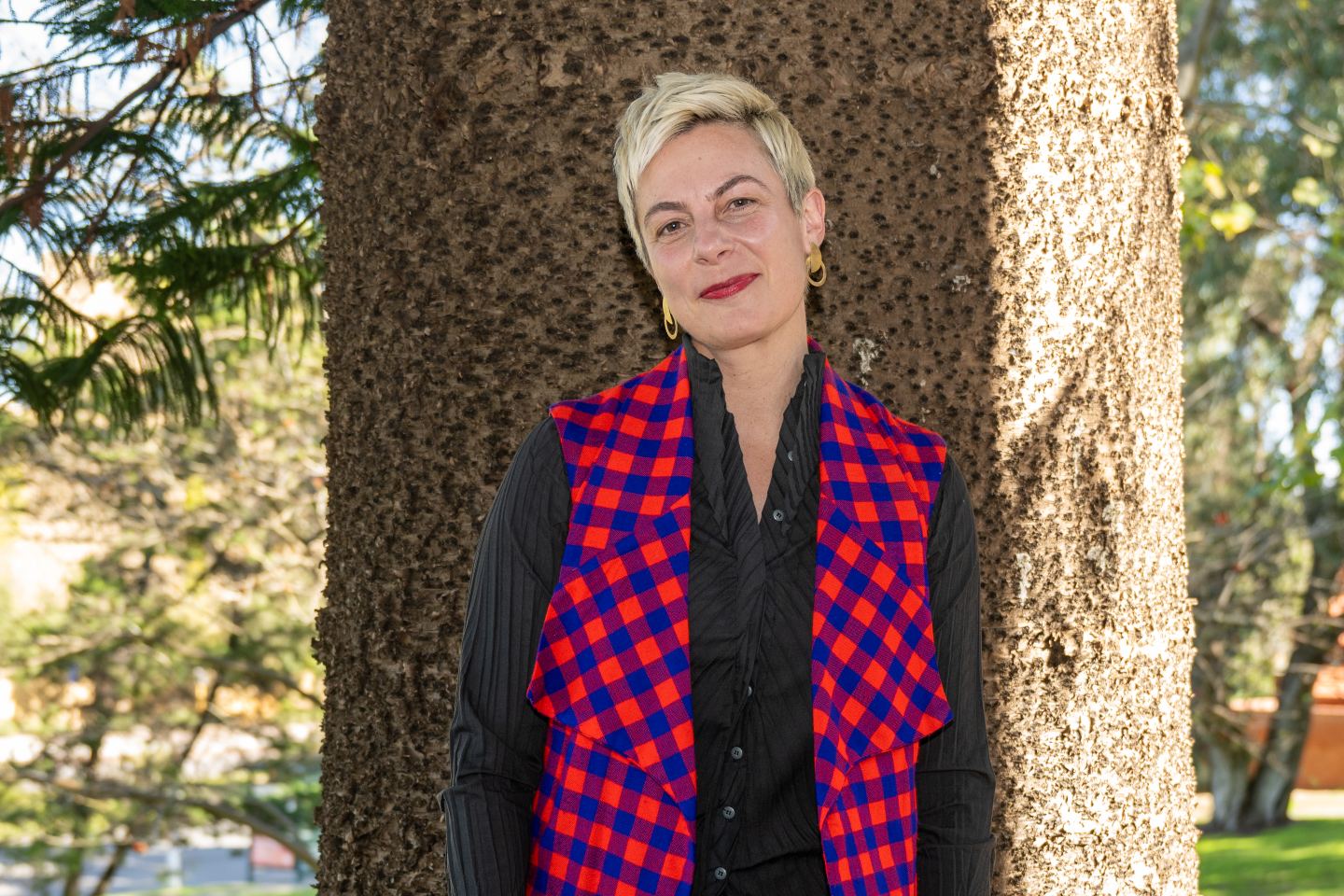The disruption of the past two years has contributed to leadership changes and restructures.


The Business News Data & Insights list of the biggest art companies in the state looks a little different this year.
Of the 20 organisations listed, at least 10 have reported new leadership during the past two years.
Three of the four major arts companies have new bosses, with West Australian Opera’s Carolyn Chard the only executive director to have led her organisation for the duration of the pandemic.
Paul Shannon stepped up in May 2020 to lead the West Australian Symphony Orchestra on an interim basis before taking on the role full time in July 2021.
Rick Heath was appointed to lead Black Swan State Theatre Company of WA in early 2020 and announced his departure in May 2022.
Mr Heath and the organisation’s artistic director Clare Watson, were replaced by Ian Booth and Kate Champion, respectively.
At West Australian Ballet, Olivier David moved to WA from Melbourne to take the executive director role at the company, only to resign a year later.
Barking Gecko Theatre Company, FORM Building a State of Creativity, and Perth Symphony Orchestra have recruited new leaders.
In March, the chief executive and chief librarian of the State Library of Western Australia, Margaret Allen, announced her retirement after 17 years in the role.
More recently, Pilar Kasat was appointed chief executive of Regional Arts WA, replacing Phil MacPhail.
Co3 Contemporary Dance executive director Alana Culverhouse, who has worked in the arts sector for the past 25 years, said she had never seen such high turnover.
“I think everyone is just really exhausted with COVID; all of the rescheduling and plans disappearing,” Ms Culverhouse told Business News.
While the exodus of leaders has been well-publicised, Ms Culverhouse said junior staff had also been affected by stress.
“Last year, we did have some staff exiting due to the stress of the pandemic, which I completely understood, we were all exhausted,” she said.
Ms Culverhouse said people worked in the arts industry because they were passionate about it, but organisations still needed to ensure employees had work-life balance.
She said Co3 had analysed staff workloads and redistributed work appropriately as a preventative measure against burnout.
The Chamber of Arts and Culture WA’s COVID Financial and Wellbeing Impact Survey Results, released in March 2022, found increased staff burnout and the resulting loss of skilled staff and artists would have a lasting impact on the sector.
It said organisations were worried about how they would attract volunteers and paid staff back to the sector.
Chamber of Arts and Culture WA executive director Kim Jameson said attracting staff back into the arts required the sector to be taken seriously as part of the state’s workforce.
“If you are not investing in the sector, you are going to have a drain on talent,” Ms Jameson told Business News.
“The talent is going to go elsewhere.”
The chamber’s survey outlined the mental health pressures on employees in the sector.
It found 58 per cent of artists and 52 per cent of arts workers had experienced mental health issues over the past two years because of the pandemic.
To assist, the chamber is piloting a program like the Employer Assistance Programs used by businesses.
Under the initiative, named a Member Assistance Program, artists and unfunded organisations will have access to mental health services.
A second key point raised in the survey was the viability of small to medium arts organisations.
It said 61 per cent of respondents in the small to medium category would not be viable in a year’s time, even if programming returned to 100 per cent capacity and consumer sentiment improved.
Business News studied the 2021 financial reports of companies ranked 12 to 22 on Data & Insights and found just two had increased their surplus from the previous financial year.
Two posted a loss, five had a decreased surplus compared to the previous year and one was unclear.
To compound matters, the sector is awaiting the details of the latest Arts Organisation Investment Program funding round to secure their finances for the next three years.
The round opens for submissions next month, but the sector is still unclear on how the funding will be structured and how much money will be up for grabs.
The uncertainty comes as organisations battle with the increasing costs of performing amid rising inflation.
Large organisations that receive multi-year funding from the Australia Council of the Arts, last awarded in 2021, are also feeling the squeeze.
Black Swan State Theatre Company of WA chief executive Ian Booth said his team had found the cost of performing in 2022 was 50 per cent more expensive than 2019.
“The government funding is fantastic, [because] it’s certain because we are a major performing arts company, but it’s not indexed in a way that relates to the cost pressures we are facing,” Mr Booth told Business News.
He said more understudies were needed for performances given the spread of COVID throughout the community and its effect on artists.
Mr Booth said it had the potential to affect what shows the theatre chose to perform, with a preference towards those requiring fewer artists.
The pandemic has markedly changed consumer behaviour, too.
Mr Booth said previously people would purchase tickets to shows when they came on sale but were now waiting closer to the performance date.
“We have definitely experienced [changing] buying patterns and people buying tickets late and, for many various reasons, needing to change what nights they’re going to attend,” Mr Booth said.
“I hope that we get to the point where we’re overcoming the nervousness.”
One of the federal government’s plans to rebuild the sector is the National Cultural Policy.
It is intended the policy, due to be completed at the end of 2022, will provide drive and direction for arts and cultural activities across government.
The federal government indicated the policy would be shaped around five principles: First Nations first; a place for every story; the centrality of the artist; strong institutions; and reaching the audience.
Kate Ben-Tovim, who joined Perth Festival at the end of 2021, was selected as a member of the reaching the audience panel.
While yet to begin work on the review, Ms Ben-Tovim told Business News she hoped the panel would articulate the importance of arts and culture across the broader society.
“How we engage domestically and how we engage internationally with audiences seems really important, especially after the past couple of years,” Ms Ben-Tovim said.

Rebecca Davis and Stuart Halusz run THEATRE 180. Photo: Matt Jelonek
Resilience
Despite the difficulties of operating over the past few years, some organisations have expanded. In Ms Ben-Tovim’s other role as Perth Festival creative producer (special projects), she is working to expand the festival’s remit to operate year-round.
The new special projects division will use the experience of people employed at the festival to offer consulting services.
“It’s about driving our ambition to become a year-round cultural organisation and thinking about how we provide the expertise here at the festival on a year-round basis to a range of organisations,” Ms Ben-Tovim said.
Meanwhile, THEATRE 180, previously known as Agelink Theatre, has emerged from the pandemic as a strong player in the small-to-medium theatre sector.
THEATRE 180 artistic director Stuart Halusz said the company was devoted to growing the breadth of the theatre sector in WA.
“We’re very interested and committed to growing the sector and expanding sector and expanding audiences and really helping WA to become a powerhouse of theatre in the country,” Mr Halusz told Business News.
In 2019, only months before COVID hit, the company transitioned from performing oral histories and shows for seniors to broadening their remit into other forms of theatre.
The company’s first show under its new name was a rendition of AB Facey’s A Fortunate Life performed in cinema theatres.
Executive producer Rebecca Davis said the new genre of theatre helped put the company on the map.
Developed in partnership with Orana Cinemas owner Ron Siemiginowski and Albany-based Green Man Media Productions, the theatre format aided both movie theatres and THEATRE 180 during the pandemic, raising visitation when Hollywood blockbusters weren’t being released.
The fact it can be transported to any cinema or performed in front of THEATRE 180’s transportable screen and only requires three actors means the show was able to easily travel regionally.
While most theatre shows only run for two or three weeks, A Fortunate Life has clocked up more than 100 shows.
The work the theatre has been doing has been recognised by prominent arts supporters Sam and Leanne Walsh, who have been named as patrons, cementing THEATRE 180’s position as a player in the medium sector.
Apart from the cinestage performances, the company has performed several other plays including The Children and is currently showing Blue/Orange at Burt Memorial Hall.
Busselton-based film festival CinefestOz has recently expanded to bring its festivities to more areas.
After being only one of two film festivals in the world to go ahead in 2020, it established an Albany iteration of the festival in 2021.
The organisation’s ethos is to bring the festival to regional areas out of peak season to stimulate economies.
It allows out-of-town visitors to explore regional areas that could be used for filming.
CinefestOz chair Malinda Nixon said the festival chose Albany as its second destination because the city had great facilities.
In partnership with Goolarri Media, with the support of an inaugural $100,000 ARTS Impact WA grant, the festival is planning on expanding to Broome later this year.
The 2022 CinefestOz in Busselton took place a few weeks ago.
Before the festival, Ms Nixon said the festival was expecting visitors from the east coast, with the new Melbourne to Busselton flight route sold out.
Some organisations were brave enough to start new festivals over the past two years.
The Perth International Cabaret Festival was launched last year and celebrated a second year in June 2022, while a group in Scarborough established a new jazz festival in 2021.
Several beachside venues and the Scarborough Beach Association recruited jazz singer and event promoter Catherine Summers to organise Jazz by the Beach to activate the area.
On a budget of $10,000, Ms Summers programmed a weekend of performances at venues including El Grotto and The Sandbar Scarborough Beach.
“From a strategic perspective, we wanted to make a brand that was a New Orleans feel that you can hop from one venue to another,” Ms Summers told Business News.
Following the success of the inaugural festival, the event attracted more sponsorship and recruited about 80 musicians to take part over the weekend of August 27 and 28.
While Ms Summers is taking it year by year, she said the Scarborough Beach Association was keen to make the event an annual one.















